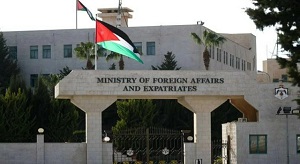Bone-Breaking Battle in Tunisia - By Dr. Amal Moussa, Asharq Al-Awsat
Tunisia’s stability and development are the first and final casualty of the ongoing weeks-long bone-breaking battle in the country. Fighting over who leads the ship as deadly storms surround it is not reasonable generally nor, under the assumption that politics is the art of administering reality and the possible, politically.
Why resort to breaking bones while everything at the national and international levels calls for resolving the issues that can be remedied? We will start from the immediate cause: Prime Minister Hichem Mechichi’s cabinet reshuffle, which will not go into effect until the new ministers take the oath in front of the president. However, Tunisia’s head of state, Kais Saied, refused to allow some of the ministers to be sworn into office, justifying this step with unresolved suspicions of some of their implication in corruption and the absence of women in the new lineup.
The problem is that the president’s refusal is stringent and non-negotiable, and on the other hand, the prime minister insists on his reshuffle and refuses to change the proposed ministers. The latter wrote to the Administrative Court, hoping to find a constitutional solution for the crisis, and the court replied that the matter is beyond its jurisdiction.
Of course, here, we should mention that the formation of the Constitutional Court has not garnered the political will needed to push it through, which means that, so far, there is no constitutional court to be resorted to in order to resolve constitutional issues. This has been particularly problematic over the past few years; that is, after the new Tunisian constitution was written, as it has become apparent that several of its provisions lack precision, many constitutional questions have no answers, and many of these questions had not been contemplated.
The question that perhaps sheds some light on the bone-breaking battle: was the reshuffle a pressing political necessity?
To understand this question, it is also important to remember that the prime minister whom the president chose to form the government - so that he could guarantee majority support for it - had committed to a cabinet reshuffle that would oust the ministers linked to the head of state, including the interior minister, who was Kais Saied’s campaign manager. Such promises were circulating in the Tunisian media at the time, and the response from the presidency was clear; it would not allow them to materialize.
However, under pressure from the parties most represented in parliament, namely the Ennahda movement, the Heart of Tunisia - whose president has been imprisoned - and the Dignity Coalition, the prime minister put his reshuffle forward in early January. In addition to defying the presidency, its timing was also politically shocking. January has been a month of protests and popular mobilizations since the Bourguiba era and the famous bread riots. In addition, throughout November and December, the streets were flooded with youth protesting in various governorates.
In other words, the prime minister, lacking political vision, severely mistimed his proposed reshuffle and removal of the ministers whose presence was opposed by the previously mentioned parties holding the parliamentary majority. Here, in truth, we find ourselves asking whether the timing was intentional and if subsequently sparking the bone-breaking battle was also intentional. This hypothesis could be adopted if we were to believe the talk spreading behind the scenes, which some have been making statements about withdrawing confidence from the president to the media. This would be a dangerous precedent, and it exposes a clear intention to make it seem that the president is the problem.
In general, without getting tied up in details and speculation, what Tunisia is experiencing today is the result of the disorientation and deadlock that emerged from the legislative election results, which have rendered tensions a constant feature that continue to accumulate and grow. The will to coexist and cooperate politically is trumped by the push for political conflict that sees each party move to further their interests by removing those who stand in their way.
Perhaps the biggest fear is that failure to resolve the problems between the president, prime minister and parliament is in the process of turning into a phase of political militancy that plays out on the streets. Everyone would lose this battle, even those who claim popularity and enjoy broad support. Such a choice would undermine state institutions’ role and create a popular culture of marginalizing the state and its institutions, a culture that would threaten all the elites that govern now and in the future.
Some may ask: why doesn’t the prime minister withdraw the controversial ministers from his lineup and thereby end this conflict and allow the country’s health and development problems to be resolved?
The answer is that backing down would mean that the president had broken the parties’ bones that pushed the prime minister to raise his mistimed challenge. Moreover, amid all factions’ determination to break bones, it is clear that uncertainties strongly outnumber the details that can be ascertained. This is because this development can only be explained as intentional and meant to reorganize Tunisian politics to further interests which, for the time being, appear impossible to pin down.
Latest News
-
 Jordan takes part in operation targeting Daesh locations
Jordan takes part in operation targeting Daesh locations
-
 Prime minister inspects infrastructure work at Amra City project
Prime minister inspects infrastructure work at Amra City project
-
 Syria monitor says US strikes killed at least five Daesh members
Syria monitor says US strikes killed at least five Daesh members
-
 Jordan welcomes lifting of US sanctions on Syria
Jordan welcomes lifting of US sanctions on Syria
-
 King hails Nashama achievement, Jordanians’ unity, resilience
King hails Nashama achievement, Jordanians’ unity, resilience